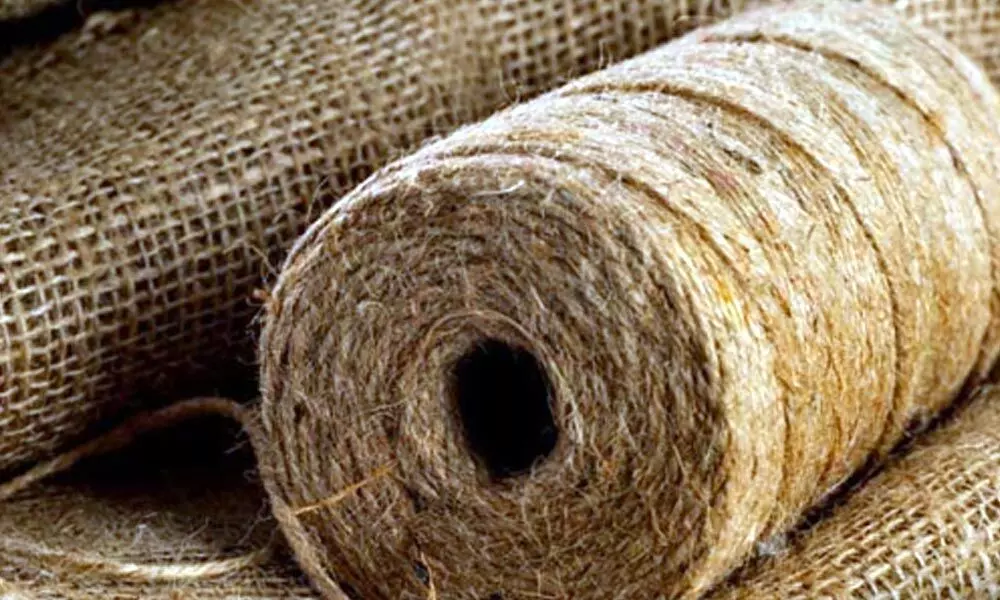Golden fibre looks to be getting back its glitters with mandatory packaging norms
The golden fibre looks to be getting back its glitters. The Modi 2.0 government has finally put to rest speculations and apprehensions that the government might consider expanding the use of plastic for packaging of wheat grains and other food grains, in the wake of acute shortfall in supply of gunny bags.
image for illustrative purpose

The golden fibre looks to be getting back its glitters. The Modi 2.0 government has finally put to rest speculations and apprehensions that the government might consider expanding the use of plastic for packaging of wheat grains and other food grains, in the wake of acute shortfall in supply of gunny bags. The Cabinet Committee on Economic Affairs (CCEA), chaired by Prime Minister Narendra Modi, on Wednesday approved reservation norms for mandatory use of jute in packaging for the Jute Year 2021-22. The mandatory packaging norms approved for Jute Year 2021-22 provide for 100 per cent reservation of foodgrains and 20 per cent of sugar to be compulsorily packed in jute bags.
Earlier, the Centre had asked the West Bengal and some other state governments to consider using plastic bags for packing 35 per cent of wheat produced in the state. And Mamata Banerjee-led Bengal government had immediately turned down the Centre's request to consider expanding the use of plastic for packaging of wheat grains, making it clear that the state government would ensure maximum use of jute bags, which is customarily used for packing food grains, to serve the interest of the jute industry and also to protect and safeguard environment and ecology.
Interestingly, the latest reservation norms in the present proposal would further protect the interest of domestic production of raw jute and jute packaging material, thereby, making India self-reliant in consonance with Aatmnirbhar Bharat. Reservation for packaging in jute packaging material consumed nearly 66.57 per cent of the raw jute produced in the country (in 2020-21). The latest move by the Centre, whether it is under mounting political pressures or something else, understandably has gone down very well among the jute industry stakeholders. IJMA said that the Centre has again chosen the sustainable and environment friendly route whereas the whole world is struggling from the repercussions of pollution caused by synthetic industrial packaging.
Quite significantly, the latest government decision on jute will be beneficial for West Bengal as, of the around 75 jute mills across the country, 62 are in the state. Some 2.5 lakh mill workers and 40 lakh farmers are also associated with the industry in West Bengal. The decision is expected to help 0.37 million workers employed in jute mills and ancillary units as well as support the livelihood of around 4 million farm families. Besides, jute being degradable, renewable and reusable fibre, it will help protect environment and fulfil all sustainability parameters.
It is pertinent to mention here that the Jute Packaging Materials Act, 1987 protects interest of jute farmers, workers and persons engaged in jute goods' production. Nearly 75 per cent of the total production of the jute industry is jute sacking bags, of which 90 per cent is supplied to the Food Corporation of India (FCl) and state procurement agencies (SPAs) and remaining is exported or sold directly. The Centre, on its parts, purchases jute sacking bags worth nearly Rs 8,000 crore every year for packing of foodgrains, hence ensuring a guaranteed market. According to the Jute Packaging Material Act of 1987, all food grains produced in India have to be mandatorily packed in jute bags. Under unusual circumstances, the central government can allow the use of plastic bags as replacement up to 30 per cent of the total food grains.

